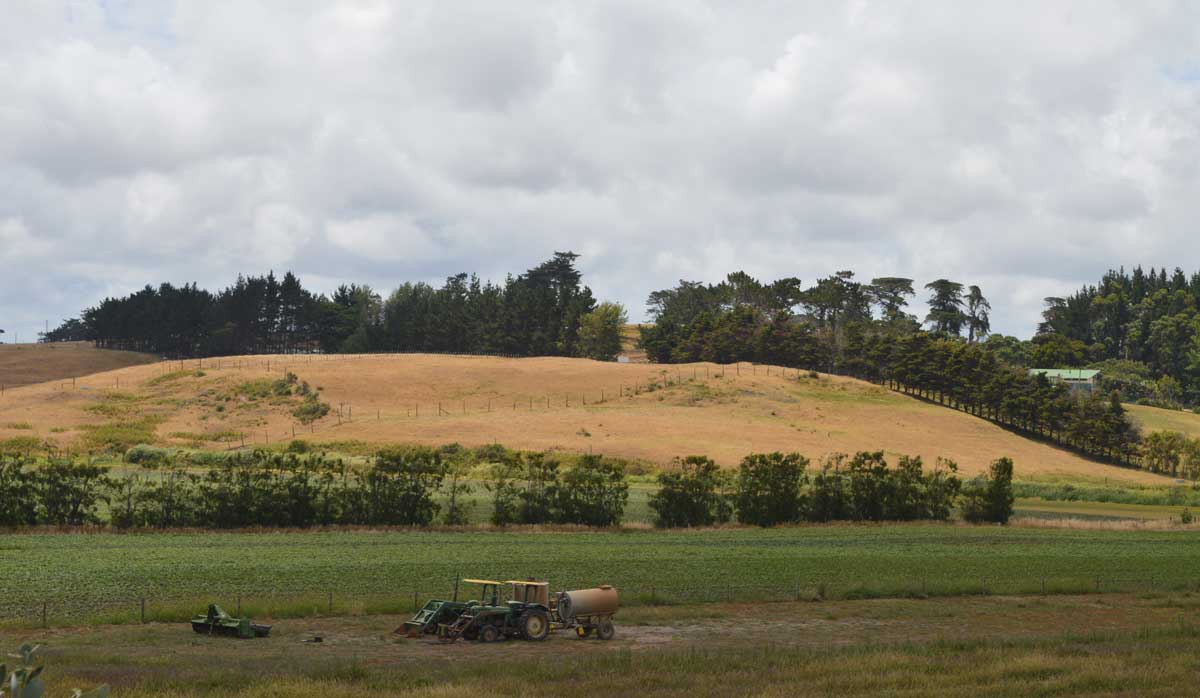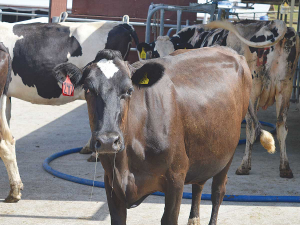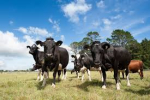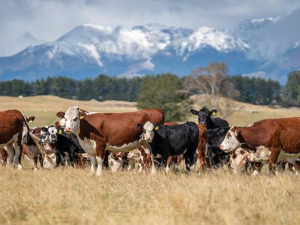Current NIWA soil moisture deficit maps show soil moisture levels are significantly below historical averages across the upper North Island, parts of the Waikato, Taranaki, Manawatū, the North Island’s East Coast, Marlborough, Canterbury and Otago.
“Ongoing dry weather can be stressful for farmers. Planning ahead for how to respond if the dry conditions continue will allow farmers to consider their options and provide confidence about having a plan in place,” says DairyNZ’s strategy and investment leader Bruce Thorrold.
“The use of supplements needs careful consideration, taking into account the costs and benefits, including to cow health,” he says.
Farmers looking at using supplementary feed to fill a feed deficit should consider a number of issues to ensure it is used profitably:
• calculate the maximum supplement price that is affordable (including additional costs associated with supplement use), while still achieving performance goals
• manage the amount of supplementary feed used to achieve post-grazing residuals of seven clicks (1500 kg of dry matter per hectare) or less on the rising plate meter, to ensure minimal substitution of pasture
• reduce feed demand by reviewing stocking rates and moving unwanted stock off-farm.
 |
|---|
|
DairyNZ is asking farmers to plan for managing stock through challenging conditions.
|
“Heat stress has a real impact on cows and it is one of the key factors affecting milk production, but farmers can take steps to manage this,” says Thorrold.
When temperatures are over 21C and humidity is over 70%, Friesians and crossbreeds begin to feed less, and milk production reduces. In Jerseys, production losses only occur when temperatures rise to 25C or more.
To help keep cows comfortable in warm weather, farmers can:
• ensure ample water is available to cows both day and night by checking flow rates to water troughs are high. Lactating cows need 100 litres per cow per day
• provide shade. Many farmers also use sprinklers and fans in dairy sheds to cool cows
• avoid giving high fibre feed to cows during the daytime, as it increases heat load
• change milking times to avoid the heat of the day. Moving to once-a-day milking or three milkings over two days is worth considering as an option.
“Farming through dry conditions does create uncertainty which can be stressful for everyone on a farm,” says Dr Thorrold. “Take care of yourself and your team by planning for everyone to have regular time off to help you farm through a difficult time.”
Additionally, as part of forward planning it is helpful for farmers to assess body condition scores and decide in advance which stock will be dried off if weather conditions remain dry.
Heat is on
Cows in all areas of New Zealand are affected by heat stress during summer.
The comfort zone for a cow is 4-20°C, much lower than the comfort zone of a human.
Heat stress occurs when an animal’s heat load is greater than its capacity to lose heat. Cows feel hot sooner than we do.
High air temperature, humidity, solar radiation and low air movement contribute to increased risk.
High relative humidity decreases evaporation and reduces the cow’s ability to lose heat by sweating and breathing.
When air temperature is greater than about 21ºC and relative humidity is greater than 70%, friesians and crossbreeds begin to reduce their feed intake, and milk production is reduced. Jerseys are more tolerant of heat, with production losses insignificant until 25ºC
Cows radiate heat during the night to the cooler surroundings. Warm cloudy nights can reduce cooling, increasing the risk of heat stress.
Minimise stress
To minimise impacts on productivity and protect cow comfort, consider the following:
Water
Lactating cows will typically require more than 100 litres/cow/day and will drink between two to six times per day. Ensure flow rates to troughs are high enough that the trough never runs dry. Most cows drink soon after milking, so install water troughs in races to meet that need.
Feed
Ensure summer pasture is of high quality. Feed with a high fibre content can increase the heat of fermentation in the rumen, increasing the heat load on the cow (e.g. non-irrigated summer pasture). Provide supplementary feed at night when it is cooler.
Shade
Use paddocks with shade trees during periods of heat stress – ideally 5m2 of shade per cow, to minimise competition. Provide shade at the shed if possible. Install shade cloth in off paddock facilities.
Management
Reduce the walking distance and speed to the dairy. Reduce the time spent in unshaded yards. Minimise handling stress. Isolate cows most severely affected by heat stress and provide shade and cooling. Milk earlier in the morning and later in the afternoon, or consider once-a-day milking.
Cooling
Sprinklers can be used over the dairy yard to wet the cows coat and aid evaporative cooling for between two to six hours after milking. However, sprinkling can increase the humidity around the cows, especially when they are held close together. The effectiveness of sprinkling depends on the removal of water vapour by air movement, ideally by using a fan.












